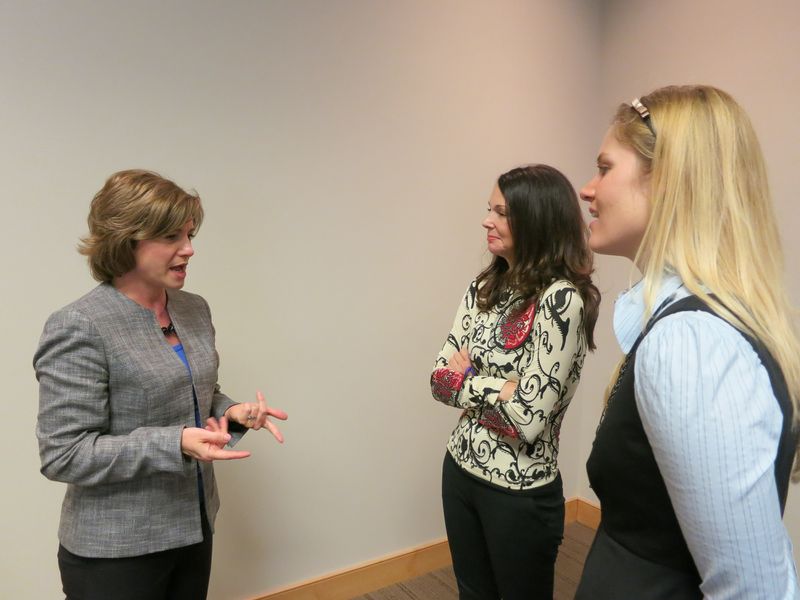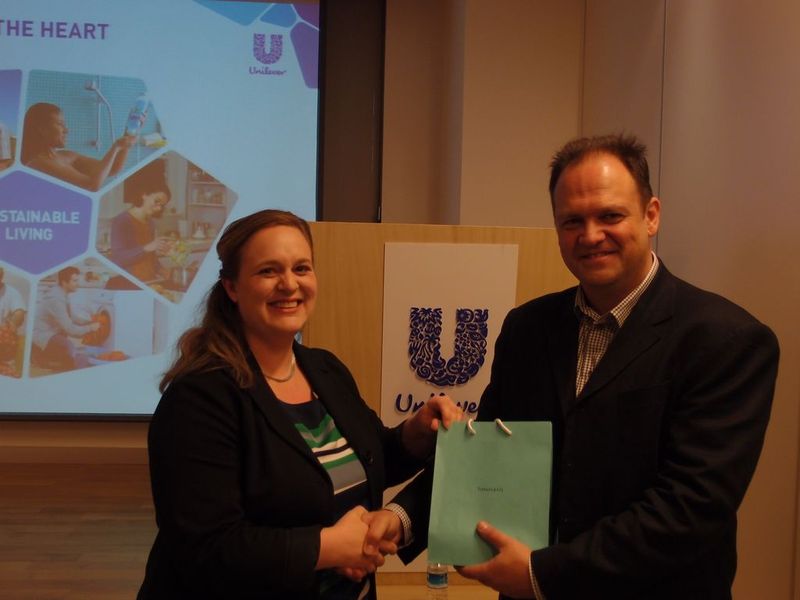4 reasons why women and EMBAs are a good match
- August 23rd, 2013
- in EMBA Program Information, Helpful Tips and Advice
 An average EMBA classroom consists of 25.4 percent female students, according to the Executive MBA Council. At The University of Alabama Culverhouse College of Commerce Executive MBA our female/male ration is 37 percent for women in the latest 2014 class. Although we continue to grow our female numbers we are often asking why such a large gap between the number of men and women? In talking with prospects, our top reasons include the added responsibilities of starting or caring for a family, securing support from an employer and time commitment required by work and family.
An average EMBA classroom consists of 25.4 percent female students, according to the Executive MBA Council. At The University of Alabama Culverhouse College of Commerce Executive MBA our female/male ration is 37 percent for women in the latest 2014 class. Although we continue to grow our female numbers we are often asking why such a large gap between the number of men and women? In talking with prospects, our top reasons include the added responsibilities of starting or caring for a family, securing support from an employer and time commitment required by work and family.
However, an EMBA program could be the perfect match for women who are looking to expand their business knowledge and professional development. Here are four reasons why:
1.) Convenient class schedule
One of the biggest benefits of an EMBA program for women is the convenience of the class schedule. The classes for EMBA at The University of Alabama meet every other weekend (Friday evenings and Saturdays). Not only does this schedule format reduce time away from work, but time away from home and families as well. Most women have an innate ability to multi-task. An EMBA program can improve on these skills and help women achieve a balance between work and home life.
2.) Female sponsors and role-models
In a Time Ideas post by Sylvia Ann Hewlett, “Women with sponsors are 27% more likely than their unsponsored female peers to ask for a raise. They’re 22% more likely to ask for those all-important stretch assignments, the projects that put them on the radar of the higher-ups.”
Female EMBA students have the opportunity to meet and learn from other business women professionals, and build strong networks. They also become role-models themselves, and are able to show other women that it is possible to successfully balance work, home, travel and study.

3.) Break through the “glass ceiling”
In Bloomberg’s 2013 Gender Gap in Earnings, men in the U.S. continue to out earn women by 23% and hold greater number of leadership positions. An M.B.A. does not guarantee a C-level position but it can lead to more opportunities, higher salaries, promotions, and gain the confidence to take on greater responsibilities at work.
4.) Taking time for yourself
Let’s face it by nature, women are nurturers who tend to put the wants and needs of others before their own; however, it is important for women to take time for themselves and pursue their dreams as well. The decision to pursue an M.B.A. is a huge step toward career development and improvement, and is a big investment in the future as well. By earning an M.B.A., women can prove to themselves as well as others that they are capable of achieving any goal they set for themselves.

For more information about UA’s EMBA program visit emba.ua.edu.
5 Top Business Schools Just as Great as Harvard and Wharton





